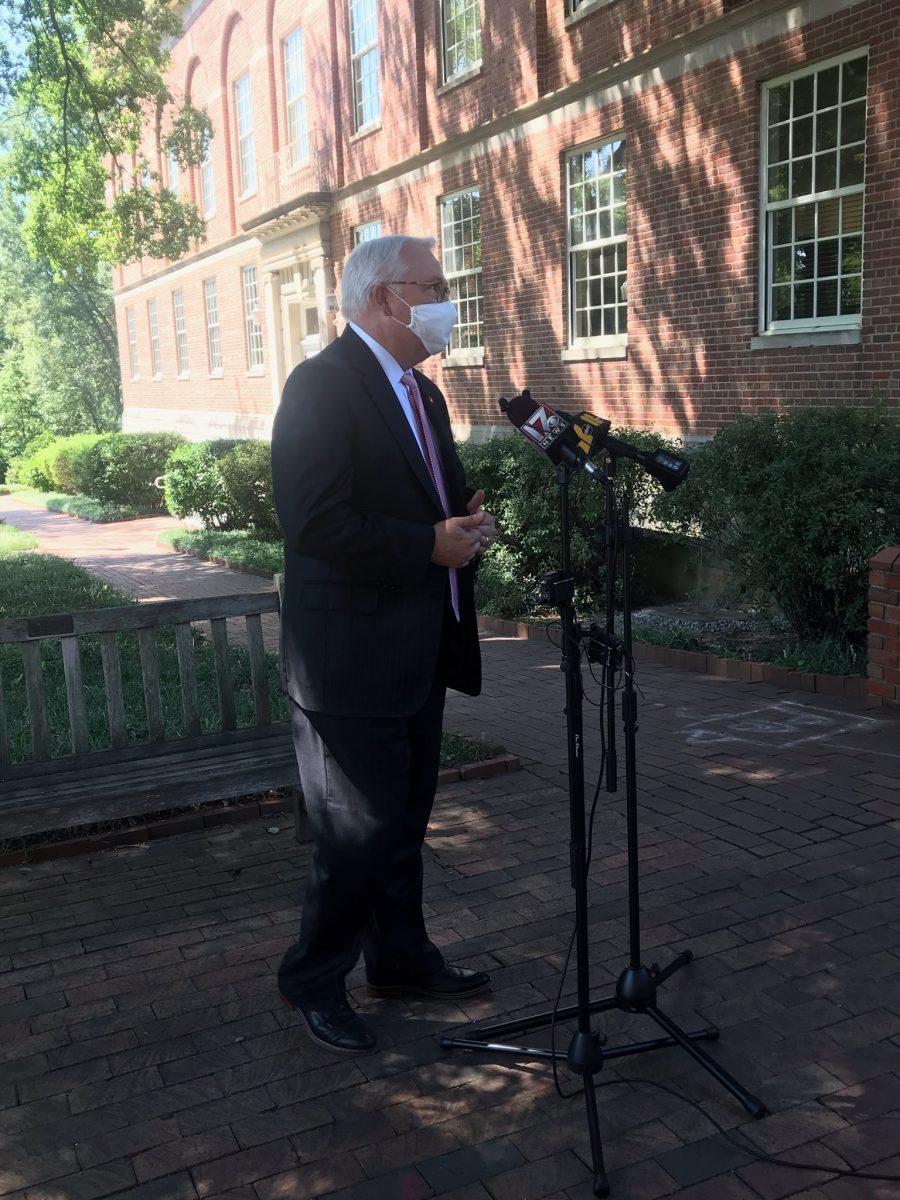On Wednesday, Aug. 26, Chancellor Randy Woodson held an in-person press conference in front of Holladay Hall to discuss NC State’s latest decision to reduce on-campus housing. This announcement comes after multiple reports of on- and off-campus COVID-19 clusters affecting the NC State community.
“It has simply become unattainable for us to offer on-campus housing to such a large number of undergraduates,” Woodson said. “We currently have 6,500 on campus, and it is clear that we are not going to be able to meet the required social distancing guidelines and be able to keep our students safe and healthy on campus.”
According to Woodson, students can begin to move out of their residence halls starting tomorrow, Aug. 27, and will continue to do so until Sunday, Sept. 6. Students have to schedule a 30-minute appointment in order to move and check out.
Students will receive prorated refunds for unused portions of housing and dining for the fall semester, Woodson said. However, students who are facing housing insecurity, travel restrictions, live in rural areas with limited internet connectivity and more can apply to stay on campus via the special housing circumstance waiver. Reviews for those applications will begin quickly, Woodson said.
Students who are currently in quarantine and/or isolation on campus cannot leave unless they are cleared by Student Health Services, Woodson said.
As of Aug. 26, there are 900 students in quarantine and/or isolation on and off campus.
Currently, there is no plan to stop classes during the move out period for students. However, Woodson said that doesn’t mean there won’t be one in the future.
Graduate students are allowed to stay on campus if they are taking in-person classes or conducting research in NC State research labs. According to Woodson, there have been no clusters or outbreaks of COVID-19 in on-campus research labs.
University Housing aims to limit its student density in residence halls to one person per room, one per bathroom, Woodson said. For example, if a suite has four bedrooms and two bathrooms, the suite should only have two people living in it.
According to Woodson, most of the University’s financial implications are embedded in “auxiliary enterprises,” like housing and dining. Housing’s budget mostly includes fixed costs, which have to be paid regardless. However, dining costs can be managed because the University can buy less food and resources.
“Certainly, we will have furloughs associated with those areas because we do not have the revenue to support them,” Woodson said.
When asked about the spread of the virus on campus, Woodson stated that he does not want to pit one student group against another student group.
“The reality is we did see the virus first appear in off-campus events and off-campus housing, and I know that has had an impact across campus,” Woodson said. “At the end of the day, the folks who have been involved in those activities will have to live with those decisions.”
Woodson also cautioned other universities in the state and across the country on how to handle the pandemic.
“You need adequate testing… you need a strong surveillance program so that you understand what is happening on your campus that is asymptomatic because so much of this is asymptomatic, and you’ve got to work hard to try to communicate to [y]our students what [y]our community standards are,” Woodson said. “I would emphasize all those points, but the key point is to be prepared.”
According to Woodson, the University has seen many cases of COVID-19 because the virus is unforgiving among a young population and spreads very quickly, due to many students being asymptomatic.
“We are all learning about this as we go and that is true for NC State and other universities across the country,” Woodson said.








